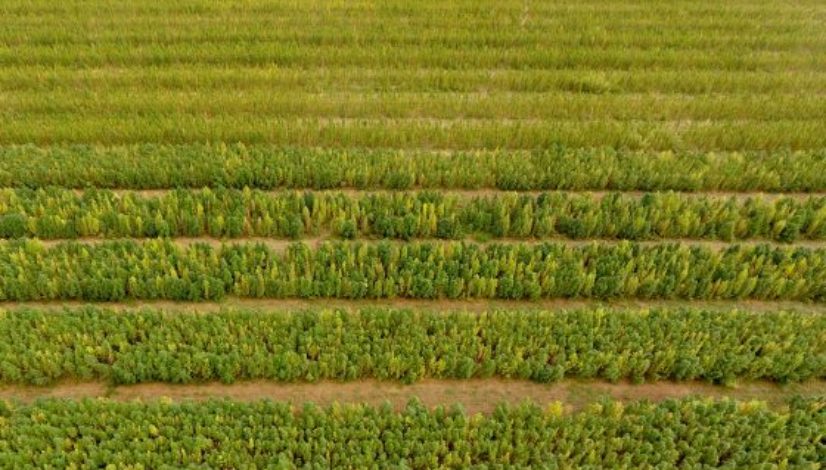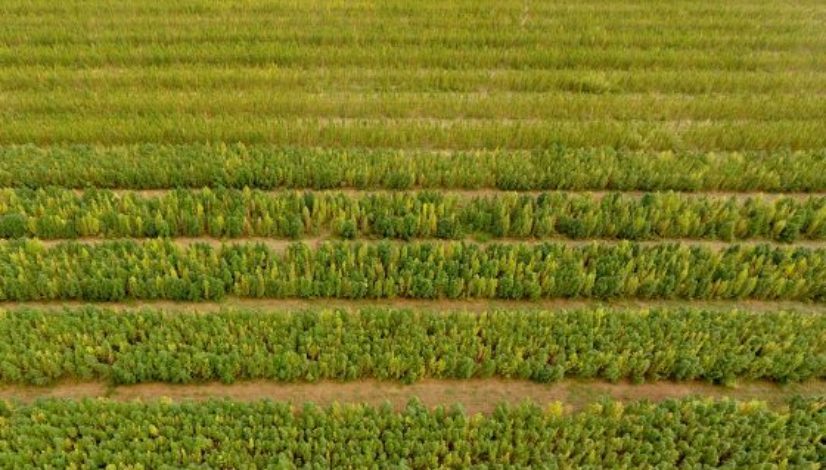80 years after hemp outlawed in Pennsylvania, state looks to triple permits

Published: Dec 13, 2017, 9:40 am • Updated: Dec 13, 2017, 10:07 am
By Wallace McKelvey, Pennlive.com
HARRISBURG, Pa. — Pennsylvania is eyeing a major expansion of its resurgent industrial hemp industry, offering more than three times the number of permits currently issued as part of a pilot program.
Hemp, once a major cash crop used to make rope and other textiles, returned to the state last year as the state approved 16 research projects that cultivated less than 50 acres. In 2018, the state plans to open 50 permits that, combined, may cultivate a maximum of 5,000 acres.
The permits themselves are also expanded. Individual growers and institutions of higher education will be able to grow 100 acres each compared to last year’s five-acre restriction.
Geoff Whaling, who owns a Berks County farm and chairs the National Hemp Association, said the expansion will allow for the development and sale of more products, at least on the local level. Congress would need to act to get those products sold nationwide.
“(Current law) doesn’t allow us to create new products available in every Target store across the country,” he said, “but it could be available in every store in Pennsylvania.”
Over the last year, advocates like Whaling joined state officials in trying to convince the U.S. Drug Enforcement Agency of the value and legality of expanding the program.
Hemp was once a major cash crop until it was outlawed in 1937 alongside marijuana, despite not having anywhere near the same level of the psychotropic chemical tetrahydrocannabinol (THC). The various “Hempfield” townships scattered across the state are a reminder of that legacy.
The crop’s return was precipitated by the 2014 federal farm bill, which opened the door for states to reauthorize hemp farming. Last Year, Gov. Tom Wolf signed legislation creating the hemp pilot program.
“Each of last year’s 14 projects taught us something valuable and we’re pleased that every one of those project leaders are likely to reapply next year,” said state Agriculture Secretary Russell Redding, in a written statement. “We expect to see the full potential of this industry in 2018.”
Those projects are scattered across the state, including one in Juniata Township, Perry County. Beyond textiles, hemp can be transformed into everything from building materials to beauty products.
Whaling said he’s currently working on a “center for excellence,” government jargon for a research partnership between top colleges and universities, that will be located in Lehigh County. Jefferson and Lehigh universities have already signed on, he said, and others are likely to join.
“They want to look at the fiber, what varietals to plant, how to harvest . . . what is the supply chain, how do you process the stuff and research and develop products,” he said.
Related stories
- World Health Organization: Initial review of CBD doesn’t warrant scheduling
- Rush on at Indiana shops to snatch up CBD oil products before they’re pulled
- Welcome, Wisconsin: State joins hemp farming ranks
- Colorado grows twice as much hemp as any other state
- Another state on brink of joining hemp farming ranks — but will gov sign bill?
The industry in America has a lot of catching up to do.
For example, Whaling said, growers don’t have farming equipment designed specifically for hemp. The plant can grow up to 20 feet tall, he said, and special equipment would be needed to efficiently remove the seed head from rows of plants.
Under current farm bill provisions, there are also limits on how the products resulting from hemp cultivation can be used and sold. Growers can’t import large quantities of seeds, something that would be necessary for a major business. And products couldn’t be sold nationwide.
John Plowman can’t help but see a missed opportunity when he comes across a “red smear” on the region’s highways.
On that front, Whaling said he’s working on language for a new congressional farm bill and standalone legislation that would address banking and law enforcement issues surrounding hemp production.
Pennsylvania’s expansion, however, is a good incremental step.
“It’s an indication Pennsylvania really wants to support and grow this industry,” he said.
A 2015 Congressional Research Service report found that hemp was used in 25,000 products, including beverages, foods, nutritional supplements, paper and textiles. The United States was the largest importer of hemp, where it was a $600 million industry.
Hemp already returned to Canada and several European countries. Since the 2014 farm bill, an increasing number of states have allowed for its return. As of last month, 38 states and Puerto Rico had enacted legislation allowing for commercial, research or pilot programs, according to the National Conference of State Legislatures.
The state is currently taking applications for next year’s program. The deadline is Jan. 19.
Via AP member exchange. Information from: Pennlive.com
Topics: hemp, hemp farming, hemp products, Pennsylvania




